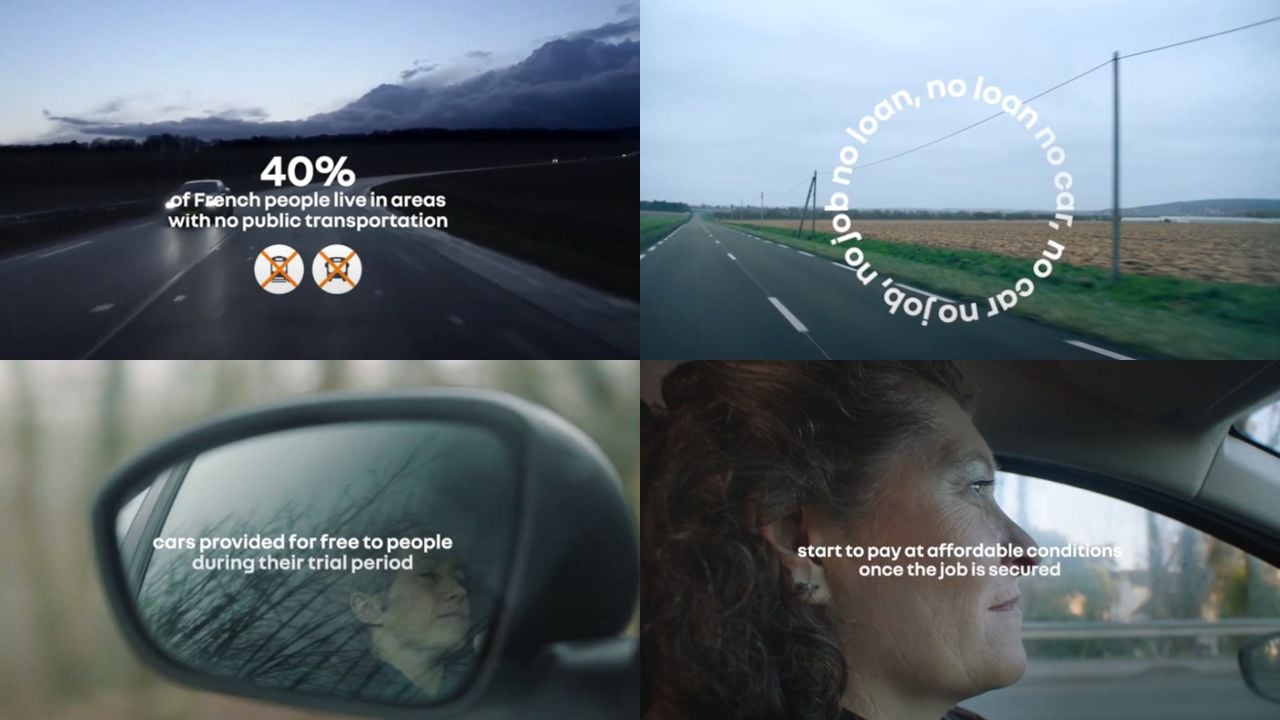In many parts of South Asia, unemployment remains a persistent challenge. But it’s not only a question of job availability – it’s also one of accessibility. For countless individuals in remote or underserved areas, the lack of reliable transportation serves as a significant barrier to securing employment. A similar crisis is quietly unfolding in France.
According to recent data, nearly 40 percent of the French population resides in so-called “mobility deserts” – regions where public transportation is sparse or entirely absent. The result is a quiet but pressing dilemma: thousands of job seekers are unable to reach employment opportunities simply because they cannot get there.
Recognizing this, French automaker Renault, in collaboration with the Publicis Conseil agency and the French Public Employment Service, launched a groundbreaking initiative titled “Cars to Work.” The campaign provides free vehicles to individuals who need to attend job interviews or commute to new jobs, particularly during France’s precarious three-month trial employment period.
In France, newly hired workers often face a probationary phase before their contracts are formalized – a time during which they are ineligible for traditional financial services such as bank loans. Without stable income or reliable transit, many are forced to decline job offers altogether. According to campaign data, more than half of unemployed individuals who received job offers declined them due to transportation challenges.
The “Cars to Work” initiative aims to bridge that gap. Renault offered temporary use of cars to individuals living more than 50 kilometers from their new jobs. Participants were allowed to repay the use of the vehicle only once they had secured full-time employment, reducing immediate financial pressure.
Publicis Conseil’s campaign didn’t merely provide a solution—it exposed a systemic flaw. By revealing that only one in five unemployed individuals living far from urban centers are able to accept a job, the initiative sparked national conversation about mobility, infrastructure, and employment equity.
The project resonated widely, earning the Grand Prix in the Sustainable Development Goals category at the 2024 Cannes Lions International Festival of Creativity. More than an award-winning campaign, “Cars to Work” has become a model for how public-private partnerships can address structural inequality with pragmatic solutions.
At a time when economic instability and job insecurity threaten the future of many, Renault’s initiative serves as a poignant reminder: sometimes, the road to employment begins with a ride.
Read More: Global Ads Spotlight: How Heinz reasserted its reign in the ketchup aisle with ‘It Has To be Heinz’
